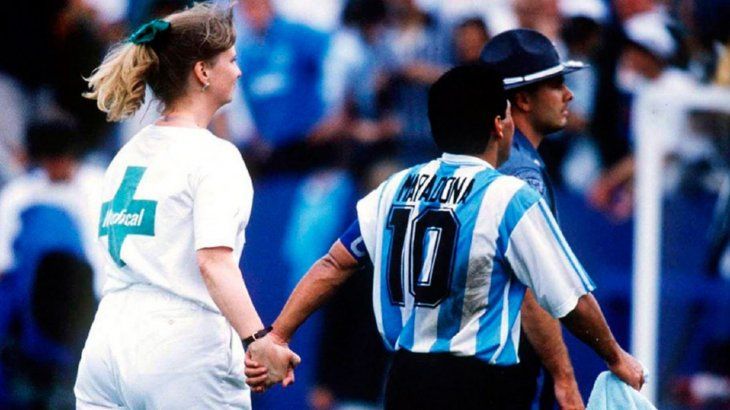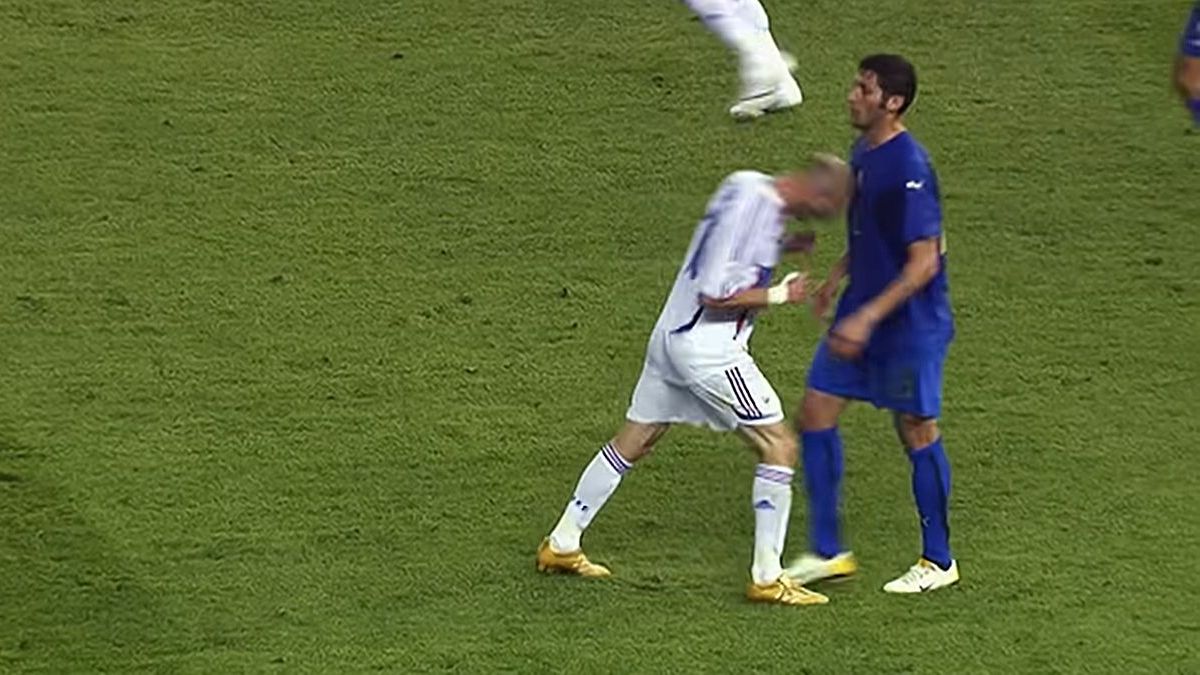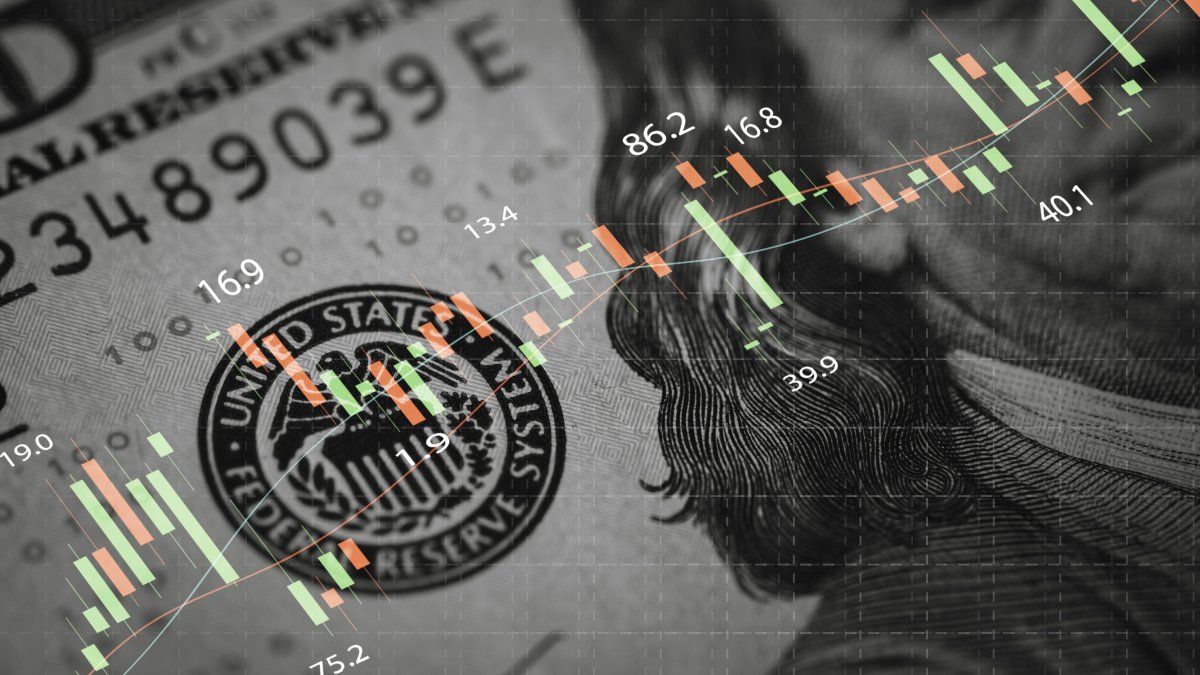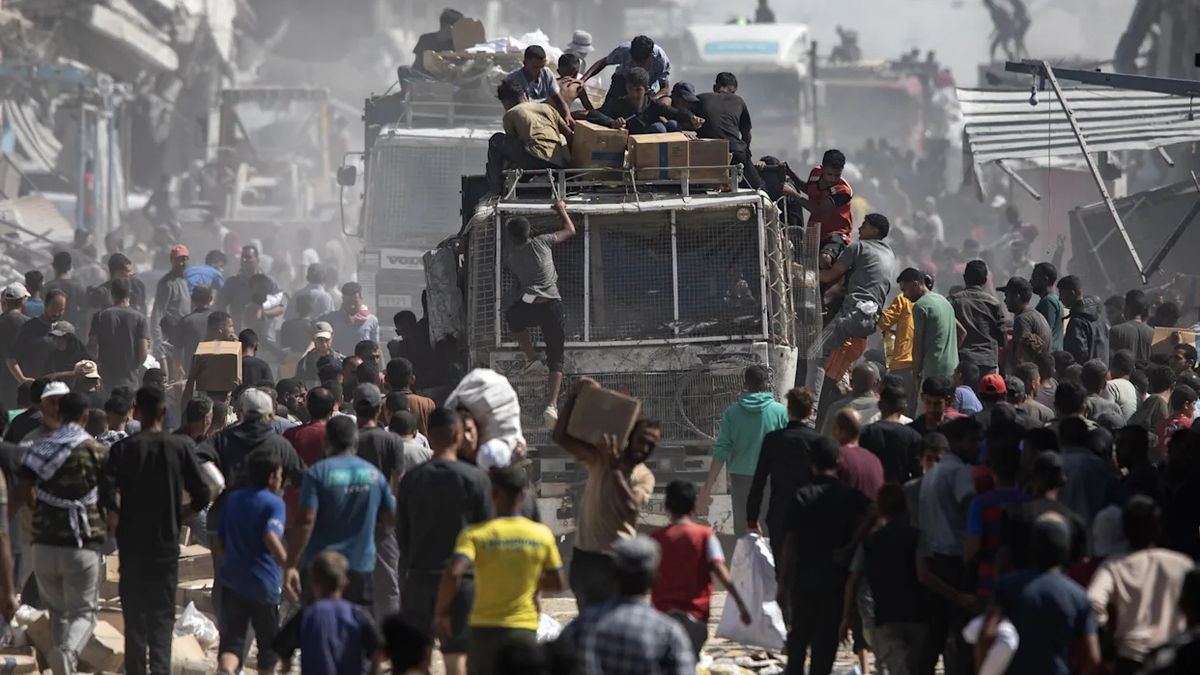How many times has an arbitration ruling transcended the result of a match? Has politics ever interfered in the development of a duel that had little (or rather a lot) to do with the government? There are dozens of examples of sad stories that raised dust that was not generated by the spike of a ball.
The stars had their own black chapter. Diego Maradona was in the eye of the storm on several occasions, in the same way as the great Zinedine Zidane, protagonist of an unusual expulsion. In the late 1990s, Ronaldo he was the best in the world, but on the last day of the 1998 World Cup he was absent from the same field.
Next Ambit compiles some of the most important controversies in the 92-year history of the World Cup, situations in which the ball did get dirty.
When god extended his hand and the devil stuck his tail
There is no episode more controversial than Maradona’s first goal against England in the quarterfinals of Mexico 1986. Symbol of the Argentine pasture, of the Creole liveliness in its most anarchist expression, the captain of the National Team detonated the Azteca Stadium: a rejection back from a defender that the Ten won in the race against Peter Shilton and spun the ball to enter. English claims, Argentine celebrations and fait accompli. The truth about who came up with the phrase “the hand of God”, after 36 years, is impossible to elucidate. Perhaps because minutes after that play, Maradona – only he could do it – buried the controversy with the most wonderful work of art that football has ever known.
Diego Maradona
The hand of God, the most discussed goal in football history.
The graphic
Eight years later, the epic tale was transformed into one of terror. Never in the history of football had it happened that a nurse took a player by the hand. On June 25, 1994, the highest national emblem left Foxboro Stadium, on the outskirts of Boston, accompanied by a health assistant. After a long-suffering Argentina victory over Nigeria 2-1, the captain looked scarred. Hours later, Diego himself told the truth. “My legs were cut off”, he said on the verge of tears, already in Dallas. He had tested positive for ephedrine, a banned drug that helps increase breathing capacity and that he took as part of personal trainer Daniel Cerrini’s nutritional plan. It was the end of the legend in the Argentine National Team.
Diego Maradona nurse

Maradona leaves the hand of Sue Carpenter, the health assistant who took him to doping control.
File, Archive
The ghost goal that was not but that all England celebrated
Wembley Stadium, 1966. VAR did not exist, but for the first time in history, the World Cup was broadcast live via satellite. Millions of local fans were looking to celebrate the first title. The British, led by Bobby Charlton, turned it around to the powerful Germany of Franz Beckenbauer, but at 89 the tie came after a barrage of German attacks.
The first extra period closed with one of the most discussed plays in history: Geoff Hurst received a ball in the large area and from an awkward position, half-turned, he finished off the goal. The ball beat goalkeeper Hans Tilkowski, hit the crossbar and bounced… off the goal. However, the English shouted the goal and the referees validated the play. Television could not prove anything. Many years later, with advanced technology, it was found that the ball had not entered. England finally won 4-2 and achieved its only world cup.
Football, dictatorship and suspicions
Argentina won its first World Cup in 1978 under the de facto government led by Rafael Videla. The intrigues and doubts of the entire planet were not few, even with versions of players who would not have wanted to come because of the dictatorship, such was the case of Johan Cruyffalthough the Dutchman himself denied that rumour.
This was one of the few editions in which there was no direct elimination in rounds, but two group stages. In the second stage, the best from each zone disputed the final. Argentina shared round with Poland, Brazil and Peru. Due to the crossover of results, the cast led by César Menotti needs to beat the Incas by four goals to access the decisive duel. On June 21, at the Rosario Central stadium, the National Team won 6-0 with doubles from Mario Kempes and Luis Luque and the rest from Alberto Tarantini and René Houseman. The rest is known history, and the conspiracies too.
Il Duce: win or die
If in Argentina 1978 there was doubt about military interference in sports development, in Italy 1934 and France 1938 there was no room for doubt. “We have to win. That’s an order”threw laconic Benito Mussolini, leader of the fascist regime that ruled the European peninsula. Of course, the Azzurra won the Cup, thanks to the presence of the military in each match, the nationalization of several foreign soccer players and arbitration decisions beyond any morals. History even says that Mussolini threatened to kill his players for the final and, knowing what happened, the Czechoslovak goalkeeper did not try too hard to contain his rivals. Italy won that match 2-1.
In France 1938 Il Duce also used football as a propaganda tool, but he went a step further: the athletes used the fascist salute on the pitch and came to play matches wearing black clothing, in homage to the brown shirts, the military forces of Italy. Although Germany, already governed by Adolf Hitler, aspired to win the World Cup, nothing could stop Italy, which lifted the Jules Rimet Cup (precisely, French) after beating Hungary 4-2 in the last match.
What happened to Ronaldo?
In the second part of the 1990s, El Fenomeno was the best player in the world. His dribbles and goals traveled the planet in a balanced display of art and sport. The 1998 World Cup must have been his great moment, since four years earlier he had been part of the champion Brazil as a teenager who promised too much. La Verdeamarelha swept the final, a match in which the carioca showed a worrying level. Some rumors reported different health problems, mainly an epileptic attack. The best center forward in history had suffered seizures hours before the duel against France and his life was in danger. His presence in the decisive match was in doubt until the very beginning. The Gauls won 3-0 against a totally bewildered Brazil and for whom Ronaldo did practically nothing. The fans marked their star as responsible for the defeat, but they did not know a detail. More than a decade later, Bruno Caru, doctor of that team, revealed that the problem of the Phenomenon that afternoon had been a heart condition that caused the seizure.
By a head
Zinedine Zidane guided France to their first World Cup in 1998. He also led France to their second final at Germany 2006, in one of the most memorable performances in football history. However, everything was diluted in the final clash against Italy. That afternoon in Berlin he marked a milestone for Argentine football: Horace Elizondo, present at the opening duel, was the first albiceleste referee to direct a final. The former referee was the protagonist of the night when at the end of the extra time he was warned by one of his assistants that the Frenchman had given a header to Marco Materazzi (the scorers of the match); consequently, without hesitation, he showed the red to the midfielder, who was playing his last game as a professional. Years later, both protagonists confirmed that the Italian had made a derogatory comment about “Zizou’s” sister and provoked a violent reaction.
zidane header.mp4
FIFA-TV
The sticks and the drum
“What they did to me was irresponsible. I drank water and I was like a fool”declared the Brazilian defender White. Argentina beat Brazil 1-0 for the second round of the 1990 World Cup on an afternoon in which the sticks saved the National Team and a genius from Maradona to assist Claudio Caniggia gave him the victory. A while before that, at the end of the first half, two fouls by Verdeamarelha, Pedro Troglio and Diez, generated a situation rarely seen in the history of football, with the edge of a police novel at its best. Galíndez, historical masseuse, props and several other “trades”, came in to attend to both beaten players. Quickly, he offered water to several rivals, but always with the precaution of giving them a green bottle. The one who accepted on both occasions was Branco, who ended up totally decimated. Pelusa himself, 15 years later, told the truth: the liquid had Rohypnol, a powerful sleeping pill that someone chopped up and put in the bottle.
An unexpected semifinalist
South Korea eliminated Portugal, Spain and Italy during their World Cup in 2002 to finally fall in the semis against Germany. It would be one of the biggest surprises in history were it not for the refereeing horrors in his favour. The Azzurra had a goal disallowed for off side that should have been validated and then the Ecuadorian Byron Moreno fired Francesco Totti for faking a foul on a dubious play. Days later, South Korea left the Iberians on penalties with a more than forgettable performance by the Egyptian Gamal Ghandour, who annulled two legal goals against the Europeans.
The refereeing raised many suspicions throughout the World Cup that came to Asia for the first time. When the FIFA-Gate exploded in 2015, just days after the mass arrests, South Korea was found to have fixed such matches.
The most violent World Cup in history
This statement is usually pronounced to describe Chile 1962. After the tournament, five players were fractured and almost 50 injured, including Pele. In an age of offensive tactics, what stood out in this tournament was the aggressiveness. Between kicks and blows, the duel that remained in the memory was the one between the local and Italy, a country that had heated up the previous one with discriminatory and segregationist newspaper articles. “It is an underdeveloped country”, published Il Resto del Carlino. The trans-Andeans, as expected, received the comments in the worst way and kept all the grudge for the duel with the Europeans. The visiting team entered the field of play with white flowers as a symbol of peace, but the National Stadium in Santiago cared little. From the first second of the game there were only blows, injuries, two expulsions in the Azzurra and the Carabinieri on the field of play for permanent income. La Roja won 2-0, but on June 2, 1962, the day of the Battle of Santiago, it will be remembered as one of the darkest days in football history. “Good evening, the game you are about to see is quite possibly the most stupid, horrible, disgusting and disgraceful display of football in history,” David Coleman said days later when the BBC broadcast the match.
FIFA-Gate: bribes around Qatar
The next World Cup will have one of the most exotic venues in history, due to the destination, the heat, the date of the year and the short distances between venues. The second Asian tournament was born as an expression of the Arab world, but it materialized through a network of bribes that led to the very michel platini, head of UEFA, to be sentenced to prison in the framework of the largest corruption case in the history of football. The FIFA-Gate investigation went as far as the choice of Qatar as the venue and brought down Joseph Blatter from his throne in world football. This tournament is considered the most expensive in history thanks to the more than US$200,000 million invested by the organizing committee. However, the waste of bills did not include a perceptive care of human rights: there are many prohibited expressions in that nation (for example, homosexuality) and the relationship with women in those latitudes is well known, in addition to the workers who have injured or killed during the construction of the stadiums.
Source: Ambito
David William is a talented author who has made a name for himself in the world of writing. He is a professional author who writes on a wide range of topics, from general interest to opinion news. David is currently working as a writer at 24 hours worlds where he brings his unique perspective and in-depth research to his articles, making them both informative and engaging.




